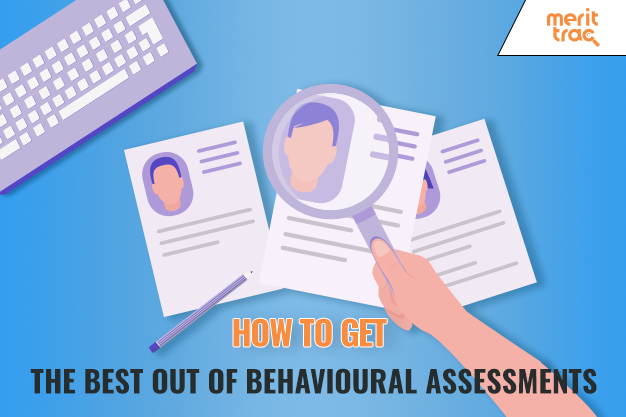
How to get the best out of Behavioural Assessments
Date: 22/08/2019 | Posted by: Meghana Jitendra | Category: Behavioural Assessment , Corporate
Most recruiters use behavioural assessments for screening unsuitable candidates. In fact, most psychometric tools are referred to as screening tools. But is that all these psychometric tools, that take several human-hours of research, resources, time and money to develop, do?
It isn’t rocket-science to look at a set of scores and send out polite rejection letters to unsuitable candidates. But recruiters can actually use psychometric assessments for more than that, giving them a competitive edge in terms of HR best practices. Insightful and well-presented reports, with perceptive interpretation can do more than just screen out candidates.
For starters, psychometric tests can be not only used for screening, but also to profile candidates during selection. Understanding what trait is most suitable, applicable and malleable for a job role can help recruiters select candidates for their behavioural and psychological strengths (with the support of interviews and other methods, of course). So, to all the recruiters: Don’t ‘archive’ those behavioural assessment reports after the ‘Assessment Round’. The insight gained from the reports can help make hiring decisions even in the final stage of selection. Here’s how:
Test reports can be used to guide interviews. Interviewers can use test interpretation to frame follow-up questions, probing to understand the candidate’s behavioural competencies better. Candidates could be asked to describe situations where they expressed a particular trait (such as creativity or adaptability), confirming the results of the test. When interviews are guided by the test results, vital insights could be gained about the consistency of the candidate’s responses, self-awareness, tendency to give socially desirable answers, and behaviour in the context of the organisation.
Good behavioural assessments cover critical behaviour samples that best reflect a trait in its essence. Assessment reports can help identify key behaviours associated with the behavioural trait and help recruiters understand how they relate to the job role, increasing predictability of behaviour, which is one of the characteristic features of psychometric assessments.
Recruiters are not the only ones who benefit from this approach to structured interview. Psychometricians also have a lot to gain by developing good tests and insightful reports. Such an approach helps establish criterion validity of the assessment. When the traits measured by the behavioural assessment are reflected in the key behaviours observed during the interview, the test can be said to have good validity. And psychometricians already know what good validity means in the business.
Psychometric assessments are steadily becoming popular in the Learning and development field (and it was about time). Assessments are being used to identify strengths, potential and improvement areas. It’s safe to say that these reports add more value to performance appraisal, especially because the influence of contingencies is controlled in assessments, giving a clearer picture of the employee’s ability, potential and developmental needs, without the ambiguity of that ‘unpredictable business crisis’.
Well, optimum utilisation of resources is actually a very beneficial practice. Try it with behavioural assessments some time.












 Sales Hotline: USA: +1 646 916 0939 / Others: +91 80619 14700
Sales Hotline: USA: +1 646 916 0939 / Others: +91 80619 14700


